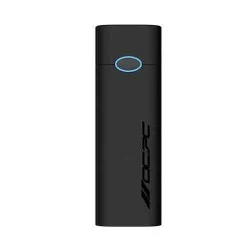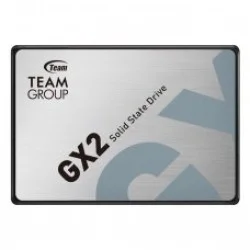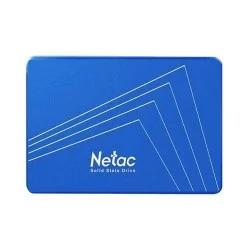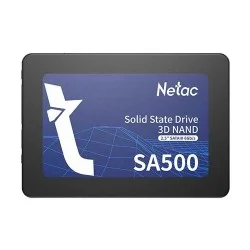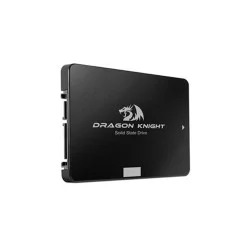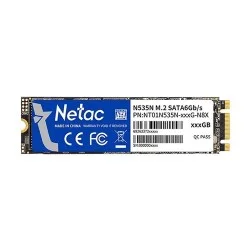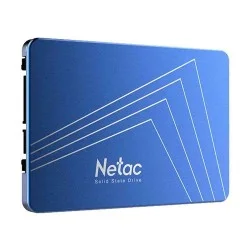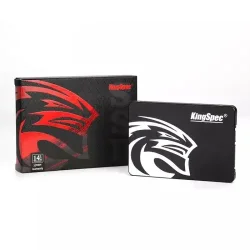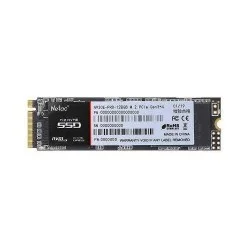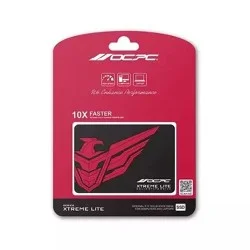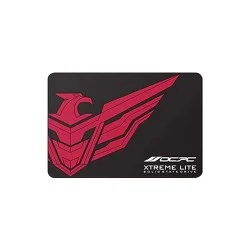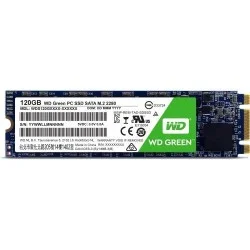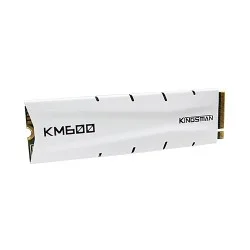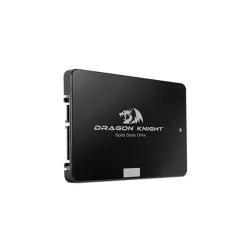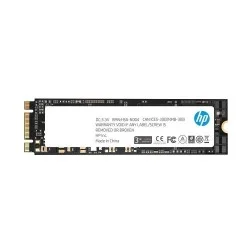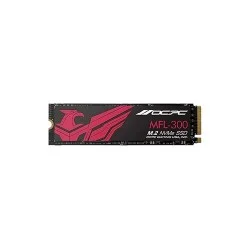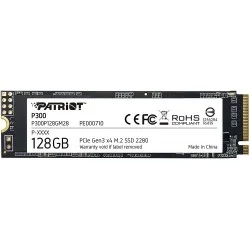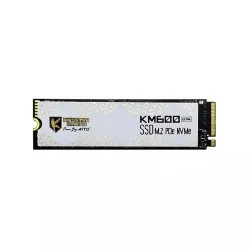SSD Card Price in Bangladesh – Upgrade Your PC with Fast Storage
An SSD (Solid State Drive) is a high-performance storage device that uses advanced flash memory technology to store data efficiently. Unlike traditional hard drives, SSDs have no mechanical parts, making them faster, more durable, energy-efficient, and quieter during operation. They significantly improve your computer’s speed by reducing boot time, loading applications faster, and enhancing overall multitasking performance. SSDs are available in various types and interfaces such as SATA, M.2, and NVMe, ensuring compatibility with most modern laptops and desktops.
In Bangladesh, SSD card prices vary based on capacity, performance, and brand. Entry-level SSDs (120GB–240GB) are priced between 1,200 and 2,000 BDT, suitable for light computing and office use. Mid-range SSDs with 500GB to 1TB storage cost around 3,500 to 7,000 BDT, offering balanced performance for gaming and creative tasks. For power users, high-speed NVMe SSDs with 1TB or more storage are available from 8,000 to 20,000 BDT or higher. Investing in an SSD not only boosts your computer’s performance but also ensures long-term reliability and smoother user experience, making it a smart choice for both personal and professional use in Bangladesh.
Top SSD brands in Bangladesh
Top SSD brands in Bangladesh are known for delivering fast performance and reliable storage for different computing tasks. Gigabyte, Hikvision, HP, KingFast, and Kingsman provide quality SSDs that improve system speed and responsiveness. Lexar, MSI, Netac, Patriot, and PNY are also popular for their durable and high-speed storage solutions. Brands like Samsung, Seagate, and Team offer advanced technology that ensures smooth multitasking and quick data access. Colorful, Corsair, and Kingston are widely trusted for their consistent performance and strong warranty support, making them top choices for users in Bangladesh.
Key Features of SSD in Bangladesh
An SSD card offers several features that make it a superior storage solution compared to traditional hard drives. The most important features include:
- No Moving Parts: SSDs have no mechanical components, reducing failure risk, improving durability, and ensuring silent, stable performance even under physical stress—ideal for laptops and mobile computing devices.
- High Read/Write Speeds: SSDs deliver extremely fast data transfer speeds, ensuring quicker file access, faster boot times, smooth gaming, and better multitasking efficiency, making them far superior to traditional hard drives.
- SATA, NVMe, and M.2 Interfaces: Available in SATA, NVMe, and M.2 formats, SSDs offer compatibility across systems—SATA for older PCs, NVMe/M.2 for ultra-fast performance in modern laptops and gaming desktops.
- Compact & Lightweight Design: The chip-based structure of SSDs ensures a compact, lightweight design suitable for ultrabooks and slim laptops, offering easier installation and flexible system design in tight spaces.
- Low Power Consumption: SSDs consume minimal power, extending laptop battery life and reducing heat production, which helps devices maintain cooler, more efficient performance during long hours of use.
- Varied Storage Capacities (120GB to 2TB+): Available in multiple capacities, SSDs suit diverse needs—from 120GB for basic use to 2TB+ for gamers, creators, and professionals needing vast high-speed storage.
- Durability and Shock Resistance: With solid-state construction, SSDs withstand shocks, drops, and vibrations better than HDDs, ensuring reliable performance for travelers and mobile users who prioritize durability and data safety.
Gaming SSD
If you’re a gamer aiming for faster performance and smoother gameplay, investing in a good SSD is essential. In Bangladesh, gaming SSD prices start from around BDT 2,800, depending on the brand and capacity. Whether you're using a desktop or searching for the best SSD for laptop, top options like NVMe and M.2 SSDs provide quick boot times and reduce game load delays. One popular brand among budget gamers is Adata, known for reliable performance. The Adata SSD price in Bangladesh is quite competitive, starting from BDT 2,500 for a 240GB model. With high-speed data transfer and solid durability, gaming SSDs are a smart upgrade for anyone wanting to level up their gaming setup.
128GB SSD
If you need a fast and affordable upgrade for your laptop or desktop, a 128GB SSD is a great entry-level option. These SSDs are perfect for users who want quicker boot times, faster file access, and smooth overall performance without spending too much. In Bangladesh, the 128GB SSD price starts from around BDT 2,000 to BDT 2,500, depending on the brand and interface (SATA or M.2). Popular choices include Kingston, Adata, and Western Digital. While the storage size is ideal for basic operating system installation and essential apps, the speed boost it offers over traditional HDDs is significant. It’s a solid upgrade for students, home users, or anyone on a tight budget.
256GB SSD
A 256GB SSD is an ideal choice for users who want to store more files while enjoying quick data access. In Bangladesh, the price for 256GB SSDs usually falls between BDT 4,000 and BDT 6,000, varying by brand and model. Whether you prefer SATA or NVMe SSDs, there are many options available from trusted brands like Samsung, Adata, Kingston, and Transcend. These SSDs are perfect for enhancing your laptop or desktop speed, improving boot times, and speeding up applications. If you’re aiming for reliable and affordable storage, a 256GB SSD offers a great balance between capacity and value.
512GB SSD
If you’re looking for a balance between speed and storage, a 512GB SSD is a solid choice for both casual and power users. It offers enough space to store large software, games, high-resolution videos, and important documents without slowing down your system. In Bangladesh, the 512GB SSD price typically starts at around BDT 8,000 and can reach up to BDT 12,000, depending on the brand, speed, and interface type. NVMe models are faster and slightly more expensive than SATA SSDs, but both deliver impressive performance. Popular brands like Samsung, Kingston, Adata, and Transcend offer durable and high-performing 512GB SSDs suitable for laptops and desktops. It’s a smart upgrade for users needing speed and ample space in one reliable device.
1TB SSD
For users who demand high-speed performance and massive storage, a 1TB SSD is the ideal solution. Whether you're editing large video files, playing high-end games, or storing extensive project data, this capacity offers speed and space without compromise. In Bangladesh, the 1TB SSD price typically ranges from BDT 15,000 to BDT 25,000, depending on the brand, interface (SATA or NVMe), and performance level. High-end models from brands like Samsung, Western Digital, Kingston, and Adata come with faster read/write speeds and better durability. NVMe M.2 SSDs offer superior performance but are priced slightly higher. A 1TB SSD not only ensures quicker boot times and faster file access but also gives peace of mind with long-term storage reliability for both personal and professional use.
M.2 SSD
Looking for faster storage in a slim form? M.2 SSDs are the perfect upgrade for modern laptops and desktops, offering lightning-fast performance in a compact size. These drives connect directly to the motherboard, eliminating cables and saving space while boosting speed. The M.2 SSD price in bd starts from around BDT 3,000 for a 128GB model, while 1TB M.2 SSDs can cost up to BDT 10,000, depending on the brand and speed. Whether you're a gamer, professional, or casual user, M.2 SSDs offer excellent data transfer rates, reduced boot times, and improved application loading. Brands like Kingston, Adata, Samsung, and Western Digital offer reliable M.2 options. If you’re upgrading for speed and performance, an M.2 SSD is a smart investment.
NVMe SSD
For those seeking top-tier speed and responsiveness, NVMe SSDs are the go-to storage solution. Designed to deliver ultra-fast read and write speeds, NVMe drives are perfect for gamers, content creators, and professionals handling heavy workloads. In Bangladesh, the NVMe SSD price starts from around BDT 4,000 for a 128GB version and can reach up to BDT 20,000 for high-performance 1TB models, depending on the brand and features. NVMe SSDs use the PCIe interface, offering significantly faster performance than traditional SATA SSDs. Leading brands like Crucial, PNY, and Lexar offer a wide range of NVMe SSDs for different needs and budgets. Whether you're upgrading a gaming rig or a workstation, NVMe SSDs offer unmatched speed, reduced load times, and superior multitasking capabilities.
Popular SSD Card Price List in BD : Available at Creatus Computer
Top Benefits of SSD Card that you need to know
Faster system performance and app launching: SSDs significantly enhance system speed, allowing your operating system and applications to launch faster. This helps reduce wait times and ensures smoother performance, making daily computing tasks more efficient and enjoyable for all types of users.
- Increased laptop battery life: Thanks to their low power consumption, SSDs help extend battery life in laptops. This makes them ideal for students, professionals, and travelers who need reliable performance on the go without worrying about frequent charging.
- Less risk of data loss from shock or drops: Unlike traditional hard drives, SSDs have no moving parts, making them more resistant to shocks, vibrations, and accidental drops. This durability reduces the chance of data loss and hardware damage during transport or rough handling.
- Quick file transfer and data access: With high read/write speeds, SSDs enable faster file transfers and quicker access to data. Whether you’re opening documents, copying files, or editing media, SSDs save time and boost workflow efficiency.
- Quieter computing experience: Since SSDs operate silently without spinning disks or mechanical parts, they eliminate the humming noise associated with traditional hard drives. This leads to a quieter, distraction-free work or entertainment environment.
- Reduced boot-up and shutdown times: An SSD can cut your system’s boot time drastically. Whether starting up or shutting down, tasks complete much faster, saving valuable time and improving overall user experience.
- Lower energy bills for long-term use: By using less power than HDDs, SSDs contribute to energy savings. Over time, this can lower electricity bills—especially important for businesses running multiple systems or servers continuously.
- Better multitasking without system lag: SSDs handle simultaneous tasks more smoothly, allowing users to run multiple applications at once without slowdown. This is perfect for multitasking professionals, students, and creative users working with demanding software.
- Ideal for gaming, video editing, and heavy workloads: With fast load times and superior data handling, SSDs are perfect for gamers, editors, and developers. They reduce in-game lag and accelerate the processing of large files and software.
Samsung SSD
Samsung is a well-known and trusted brand famous for making high-quality SSD cards. In Bangladesh, Samsung SSDs are available starting at around BDT 4,000 for smaller capacity models like 128GB, while larger capacities like 1TB cost about BDT 15,000. Samsung SSDs are popular for their durability, fast speed, and reliable performance, making them a smart choice for professionals, gamers, and everyday users alike. If you are looking for a budget SSD card price in Bangladesh, Samsung offers some affordable options without compromising quality. You can find genuine Samsung SSDs and other brands at competitive prices at trusted retailers like Creatus Computer, ensuring a safe and satisfying purchase
Kingston SSD
Kingston is a trusted brand offering a wide range of SSD cards to fit different budgets and needs in Bangladesh. Kingston SSD prices start at around BDT 3,000 for basic models like 120GB and can go up to BDT 12,000 or more for higher capacity drives. Known for its quality and performance, Kingston SSDs are one of the best SSDs for PC users who want reliable and fast storage without spending too much. Whether you’re upgrading an old computer or building a new one, Kingston SSDs provide smooth performance and durability. You can buy genuine Kingston SSDs from authorized dealers like Creatus Computer at competitive prices.
Buy Now the Best SSD Card from Creatus Computer with Special Price
If you like shopping online, buying SSD cards in Bangladesh is very easy now. Websites like Creatus Computer offer a wide range of SSD cards at good prices with the convenience of home delivery. For example, the Western Digital SSD price in BD starts from about BDT 3,500 for a 250GB model. The HP SSD price in BD begins at around BDT 4,000 for similar storage. Whether you live in Dhaka or elsewhere, you can find the best SSD card price in Dhaka on online stores like Creatus. Shopping online lets you compare prices, read reviews, and enjoy discounts, making it simple to get a reliable SSD delivered safely to your home.
Are SSDs more expensive than HDDs?
Yes, SSDs generally cost more per GB, but their faster speed, durability, and lower power use make them a worthwhile long-term investment.
What storage capacities do SSD cards come in?
SSD cards are available from 120GB up to 4TB or higher, allowing users to choose based on performance needs, usage type, and storage budget.
Is installing an SSD difficult?
Installing an SSD is simple in most desktops and laptops. Just check the system’s slot compatibility (SATA or M.2) before installing your new drive.
What are the common SSD interfaces?
The most used interfaces are SATA, NVMe, and M.2. NVMe provides the fastest data speeds, while SATA offers excellent compatibility and affordability.
Can SSDs be used as external drives?
Yes, SSDs work perfectly as external storage devices. They are fast, compact, shock-resistant, and ideal for transferring large files or backups quickly and safely.


